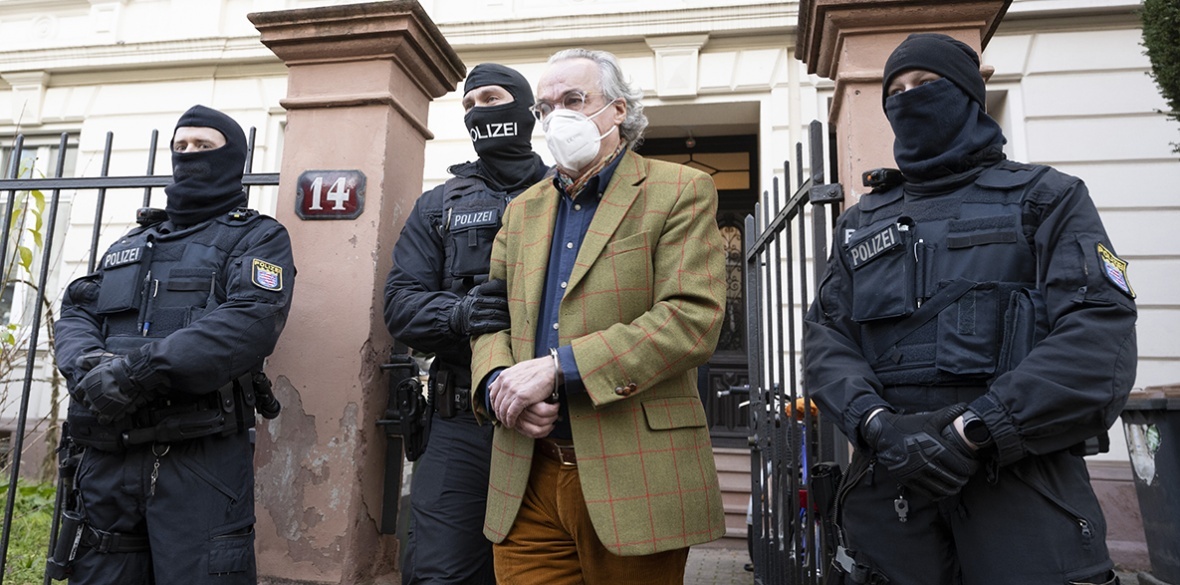This is the last article you can read this month
You can read more article this month
You can read more articles this month
Sorry your limit is up for this month
Reset on:
Please help support the Morning Star by subscribing here
GERMANY’S far right is growing and continues to pose the country’s biggest security threat, the BfV security agency reported today.
It published figures showing an increase in criminal cases linked to “extremism” to 35,452 and said that it had counted 38,800 far-right extremists, a rise of more than 5,000 on the 2021 figure and nearly 15,000 more than in 2018.
Interior Minister Nancy Faeser expressed particular concern at an increase in attacks on refugees and immigrants.
Last year, she announced a 10-point plan to tackle the far right, including a police operation to seize weapons and measures to cut off funding.
At the same time, the BfV said that it would start monitoring the Alternative for Germany (AfD) party, which has 78 MPs, as an extremist group. But polls this month put it in second place nationally, behind the Christian Democrats and, with 19 per cent, one point ahead of Chancellor Olaf Scholz’s Social Democrats.
The AfD’s continued rise has been blamed on Germany’s “traffic light” coalition government failing to protect industry or living standards from an inflation crisis sparked by sanctions imposed on Russia, Germany’s main energy provider, and on the collapse into infighting of the socialist Die Linke, which called this month on its highest-profile MP, Sahra Wagenknecht, to step down following rumours that she plans to start a breakaway party with a clearer pro-peace line on Ukraine.
Ms Faeser identified the far right as the country’s biggest security threat on her appointment as Interior Minister in 2021, following a year in which the army had had to disband its elite KSK commando unit because so many of its officers were found to have links to neonazi extremists.
Last winter, police arrested Prince Heinrich XIII of Reusse and seized weaponry from scores of houses as they foiled a plot to seize power and restore the German monarchy.
Last year, Alexander Ritzmann, the Berlin head of the Counter Extremism Project, warned that the problem would grow if neonazi groups with ties to Ukrainian fascist militias such as III.Weg (“Third Path”), which has trained and invited speakers from Ukraine’s neonazi Azov Battalion, sent volunteers to fight Russian forces.
“If we have groups of highly motivated, combat-experienced far-right extremists with post-traumatic stress disorders, then attacks in European countries may look very different in the future,” he told an extremism summit.









